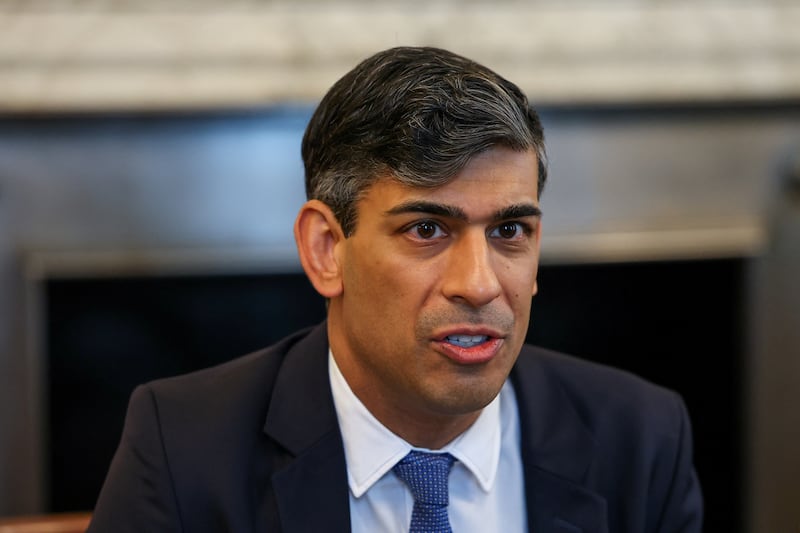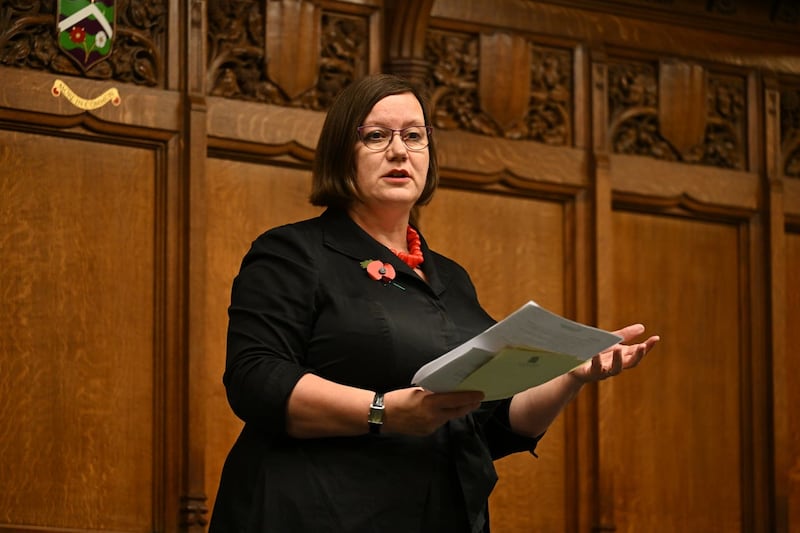Any failure in the process of moving people to Universal Credit from older so-called legacy benefits could lead to “real-world misery for thousands”, MPs have warned.
The Department for Work and Pensions (DWP) must ensure it helps claimants, some of whom are “vulnerable”, to switch and not lose their benefits, their report said.
The DWP has insisted benefits are only ever stopped as a last resort after multiple unsuccessful attempts to engage with someone.
The Public Accounts Committee (PAC) said DWP expected that around 4% of the claimants currently on legacy benefits would not switch to Universal Credit under the process known as managed migration.
It was announced in 2010 as a plan to reform the welfare system by introducing Universal Credit as an integrated benefit, replacing six means-tested legacy benefits for working-age people.
These are Working Tax Credit, Child Tax Credit, Housing Benefit, Income Support, income-based Jobseeker’s Allowance, and income-related Employment and Support Allowance.
As of March last year, there were some 2.2 million households receiving legacy benefits, and DWP has been working to move 900,000 of these to Universal Credit.
The PAC said DWP was facing the “challenging task of moving claimants off its own legacy benefits, some of whom are likely to be vulnerable”.

It stated: “Although the department expects only around 4% of these claimants will not switch to Universal Credit, we would be very concerned if large numbers of these people did not transfer and were to lose their benefits.
“It is vital that the department helps these claimants to make the switch, including offering face-to-face support and making sure people fully understand the process, including the arrangements for transitional protection.”
A National Audit Office (NAO) report in February warned that 21% of households claiming legacy benefits had not transferred to UC after receiving a notice to switch, and therefore had these older benefits stopped.
Almost all of these households had been receiving tax credits, that report said.

In a major speech on welfare reform last week, Prime Minister Rishi Sunak pledged to “accelerate moving people from legacy benefits onto Universal Credit, to give them more access to the world of work”.
DWP has said it aims to notify all households to make the move to UC by the end of 2025.
Committee chairwoman Dame Meg Hillier said if the transition process “fails even an apparently small proportion of people, it will lead to real-world misery for thousands”.
She said: “Our committee has scrutinised Universal Credit since its inception.
“We must not forget how massive a change it is to how benefits are delivered, impacting millions of people.
“This means if the transition from legacy benefits to UC fails even an apparently small proportion of people, it will lead to real-world misery for thousands.
“The DWP must make sure that people are not cast into financial hardship due to a bureaucratic change, and that robust support is in place for those vulnerable claimants who need it most.
“The DWP argues that an increase in fraud across society as a reason for high rates of fraud and error related to universal credit, rather than laying out a plan for how it is tackling the problem.”
Alison Garnham chief executive of Child Poverty Action Group (CPAG) said: “Warnings like the PAC’s are coming thick and fast as the DWP steamrolls on with managed migration, leaving vulnerable claimants in its wake – without the benefits they are entitled to and need.
“The department’s lack of concern that so many tax credit claimants haven’t moved to UC and have had their benefits cut off as a result is chilling.
“The DWP must put its spreadsheet targets aside, slow the roll-out of UC right down and come up with a safe process that won’t leave large numbers of claimants falling over a cliff edge into debt.
“The time to do this is now – not later, when even more claimants will be at risk.”
A DWP spokesperson said: “We disagree with these findings, which do not acknowledge that the vast majority of Tax Credit customers have successfully moved to Universal Credit.
“There is a range of support to help people move, including dedicated helplines, extensions and transitional protection for those who need it.
“Universal Credit is having a sustained positive impact on the jobs market, with people on Universal Credit more likely to be in work within three, six and nine months of their claim.”









